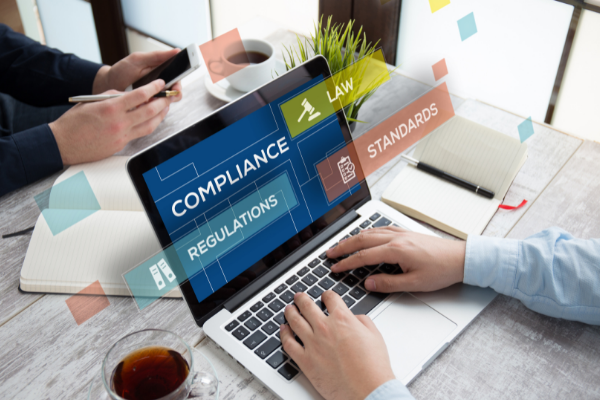BY:
SHARE:

HMRC have recently published several updates to Customs Special Procedures and other import and export guidance pages. A summary of the changes and links to the updated pages are given below.
Outward Processing
What it is:
Outward Processing is a method of duty and VAT management that allows for the provision of goods exported for repair or processing to be reimported, with duty and VAT payable only on the costs of the repair or processing. For example, without employing an OP authorisation for an export for repair or processing, and with no compliance evidence to support the subsequent re-import, HMRC would consider that the goods on re-import are home-use imports, subject to duty and VAT on the full value of the goods.
Outward Processing Authorisation falls into four types:
Full authorisation: The importer applies to HMRC for an OP authorisation. This authorisation number must be quoted on all declarations where goods for return are to be re-imported, with duty and VAT payable only on the processing or repair costs.
Retrospective Authorisation: In exceptional circumstances, retrospective authorisation can be applied for after goods have been exported. This authorisation can only be used if it has not been used in the previous 3 years. HMRC would expect that a full OP Authorisation should cover frequent use.
Authorisation by Declaration: To be used for export for repair only, the declaration serves as the authorisation, identified by the procedure coding on the declaration. AbD may only be used under specific circumstances, for example, when the goods value is less than £500,000, or if importing using a simplified declaration.
An Authorisation that covers Northern Ireland and the EU:
If an authorisation is required for both GB and NI, two applications will be necessary to enable adequate provision.
What’s the change?
The number of times a business can apply for Authorisation by Declaration has been increased from 3 times in a rolling 12-month period to 10 times in a rolling 12-month period.
Full details can be found here: Apply to pay less duty on goods you export to process or repair - GOV.UK.
Inward Processing
What it is: Inward Processing allows importers to suspend Customs duty and import VAT on goods they import for processing or repair from outside the UK.
This is particularly important for traders who have no intention of owning the imported goods. For example, when goods are imported for repair and return, or the importing business specialises in the repair of imported goods for reexport.
Postponed or Deferred VAT Accounting cannot be used as a mechanism for managing import VAT where there is no intention for the importing business to own the goods. Therefore, without using IP, goods imported for repair or processing and re-export would be subject to non-recoverable import VAT and duty on the full value of the goods at the time of import.
Inward Processing authorisations fall into the same four categories as Outward Processing, namely: Full Authorisation, Retrospective Authorisation, Authorisation by Declaration, and an Authorisation that covers Northern Ireland and the EU.
What’s the change?
The number of times you can apply for IP authorisation by declaration in your import declaration has been changed from 3 times to 10 times in a rolling 12-month period.
A link to the updated page can be found here: Apply to delay or pay less duty on goods you import to process or repair - GOV.UK.
Importing for Specific Uses
What it is: Some goods can be authorised to be imported to a specific authorised use, if the goods are captured in the Tariff as qualifying. Specific uses include importing for end-use in the aerospace industry, ship works, or fisheries.
How to apply:
There are four types of authorisation available for authorised use:
- Full Authorisation
- Authorisation by Declaration
- Retrospective Authorisation — this is Full Authorisation where you request the start date to be before the date of application
- Authorisation covering Northern Ireland and the EU
Full Authorisation
Full Authorisation allows you to use:
- authorised use regularly
- authorised use if you import non-commercial goods and you’re not established in the UK
- a simplified declaration to import or export your goods
A list of goods that could fall under Importing to Specific Use can be found here: Authorised_Use_Eligible_Goods_and_Authorised_Uses_-_v2.18.docx.
Change made: The number of times an authorisation by declaration can be used has been increased from 3 times in a 12-month rolling period to 10 times in a rolling 12-month period.
A link to the guidance page can be found here: Apply to pay less duty on goods you import for specific uses - GOV.UK
Notices made under The Customs (Import Duty) (EU Exit) Regulations 2018
2 new notices have been added to ‘Notices made under The Customs (Import Duty) (EU Exit) Regulations 2018’, setting out the process of applying to HMRC for approval to declare certain goods to a temporary admission procedure, without an electronic declaration.
The new notices are to be found at 13 and 14 on the update issued below:
Notices made under The Customs (Import Duty) (EU Exit) Regulations 2018 - GOV.UK
Temporary Admission
What it is: Temporary Admission Authorisations are employed when goods for import are intended to be imported on a temporary basis to be re-exported unchanged, in due course. Therefore, a Temporary Admission procedure is applied at import and duty and VAT are duly suspended.
There may, however, be a guarantee or deposit payable, refundable on goods' exit from the UK territory.
There are six types of authorisations for the use of Temporary Admission:
- Full Authorisation
- Authorisation by Declaration
- an Authorisation that covers Northern Ireland and the EU
- Retrospective Authorisation — this is a Full Authorisation where you request the start date to be before the date of application
- Oral Declaration
- crossing the border ‘by any other act’
A Temporary Admission Authorisation is needed to suspend the import duty and VAT until the goods are confirmed as re-exported.
Goods for Temporary Admission should not be altered in any way before re-export.
Time limits vary for different types of goods, and some can be extended by submitting a request to HMRC.
Change Made: The time limits for which certain goods can remain before they must be re-exported have been updated.
Apply to import goods temporarily to the UK - GOV.UK
Authorisation by Declaration
What it is: Authorisation by Declaration is a method to suspend import duties and VAT on an import while goods are processed or used, then re-exported. It can be used for many purposes, including importing to IP or OP, with specific conditions.
The Customs Declaration will be a one-time only authorisation to use the special procedure for the goods on that specific declaration.
Goods must be under £500,000 in value.
Change made:
You can use Authorisation by Declaration 10 times within a rolling 12-month period.
Using a special procedure without a prior authorisation - GOV.UK
OneCall™ Email assistance as and when required; A one-call solution for all your import, export and customs enquiries. Export help. Import help. Customs help.
Stay informed about customs and international trade matters by subscribing to our OneCall™ service. This comprehensive offering includes a dedicated email helpline for support, timely practical updates direct to your inbox (Did You Know?), monthly UK Customs & Trade Briefings and access to an interactive members' area with an exclusive community for our subscribers.
International Trade Updates & Spotlight Newsletter
Subscribe to our free information emails covering international trade topics...












